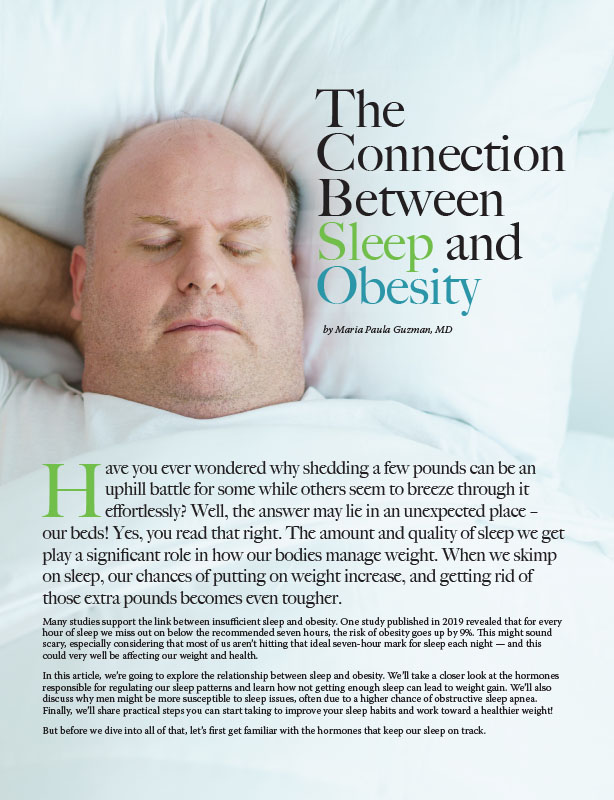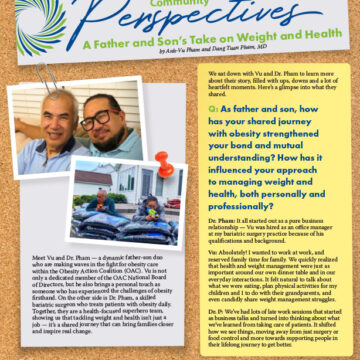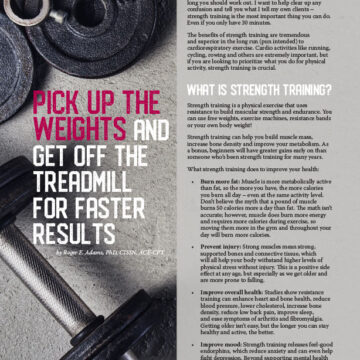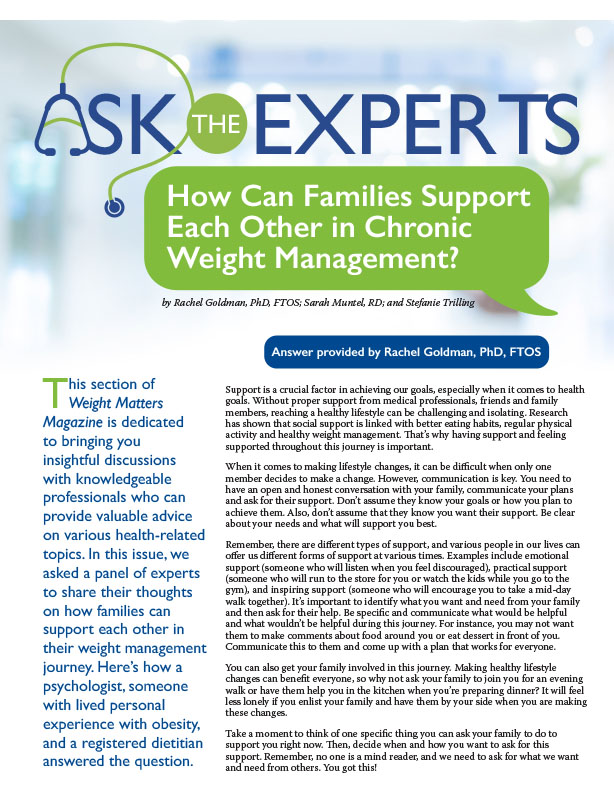The Connection Between Sleep and Obesity


by Maria Paula Guzman, MD
Have you ever wondered why shedding a few pounds can be an uphill battle for some while others seem to breeze through it effortlessly? Well, the answer may lie in an unexpected place – our beds! Yes, you read that right. The amount and quality of sleep we get play a significant role in how our bodies manage weight. When we skimp on sleep, our chances of putting on weight increase, and getting rid of those extra pounds becomes even tougher.
Many studies support the link between insufficient sleep and obesity. One study published in 2019 revealed that for every hour of sleep we miss out on below the recommended seven hours, the risk of obesity goes up by 9%. This might sound scary, especially considering that most of us aren’t hitting that ideal seven-hour mark for sleep each night — and this could very well be affecting our weight and health.
In this article, we’re going to explore the relationship between sleep and obesity. We’ll take a closer look at the hormones responsible for regulating our sleep patterns and learn how not getting enough sleep can lead to weight gain. We’ll also discuss why men might be more susceptible to sleep issues, often due to a higher chance of obstructive sleep apnea. Finally, we’ll share practical steps you can start taking to improve your sleep habits and work toward a healthier weight!
But before we dive into all of that, let’s first get familiar with the hormones that keep our sleep on track.
Decoding the Role of Hormones in Sleep
Sleep is influenced by two important hormones: melatonin and cortisol. Our bodies operate on a sophisticated system called the circadian rhythm, guided by hormones that manage our sleep and wakefulness. Deep within the brain, in a region called the hypothalamus, lies our biological clock, which controls this rhythmic cycle. Melatonin and cortisol are two key hormones that initiate and conclude sleep.
As darkness sets in each evening, the hypothalamus sends a message to the pineal gland, prompting the release of melatonin — the hormone that encourages sleep. While the exact timing of melatonin release varies from person to person, it generally occurs two to three hours before our typical bedtime. Melatonin levels continue to rise as relaxation takes over, helping us fall asleep and reach their peak a few hours into the night.
Melatonin is not produced during the day. When light enters our eyes, it communicates with the hypothalamus to halt melatonin production, keeping us awake and alert. This is why too much exposure to light in the evenings can be detrimental. Scrolling on phone screens or watching TV in bed can disrupt melatonin production and make it difficult to fall asleep. This is also why sleep doctors harp on avoiding electronics within one to two hours of bedtime. Easier said than done, right?
The story gets more complex with cortisol. You may be familiar with cortisol as the stress hormone responsible for our “fight or flight” response. What you may not know is that cortisol doubles as an internal alarm clock – a silent one that your sleeping partner sleeps right through! The hypothalamus regulates cortisol through the pituitary-adrenal axis. In ordinary conditions, cortisol levels drop in the evening, allowing us to enter into a relaxed state conducive to sleep. These levels reach their lowest point shortly after we fall asleep. Gradually, cortisol begins to rise during the early morning hours (usually 3-4 a.m.) and peaks around our natural wake-up time (7 to 9 a.m.), effectively signaling our brain to wake up.
Cortisol poses challenges, particularly during periods of high stress – as is often the case for many of us. Prolonged stress results in continuous elevation of cortisol, impacting our ability to fall asleep and stay asleep. This elevation can also lead to waking up earlier than desired, as cortisol levels surpass our wakefulness threshold ahead of schedule. Consequently, chronic stress can reduce sleep quality, leaving us feeling groggy and fatigued during the day. Sound familiar?
Poor Sleep and Weight Gain
Now that we’ve explored how our bedtime habits impact our sleep let’s look at the connection between sleep quality and weight gain. The amount of sleep we get actually plays a role in both our appetite and the food choices we make.
Just like hormones play a crucial role in regulating our sleep patterns, these same hormones also have a hand in controlling our appetite and, in turn, our weight. When we don’t get enough sleep, our appetite-related hormones can be affected. One of these hormones is ghrelin, which signals hunger, and another two are leptin and glucagon-like-peptide 1 (GLP1), which indicate when we’re full. Several studies have shown that sleep deprivation tends to raise ghrelin levels while lowering leptin levels, causing us to feel hungrier and less satisfied after eating. Interestingly, these hormonal responses can differ between men and women. Men, for example, tend to experience increased ghrelin production in response to sleep deprivation, whereas women more often experience a reduction in the fullness signals leptin and GLP1.
But that’s not all. In addition to the hormonal changes, inadequate sleep seems to influence our brain function at the neuron level. Changes in the reward centers in our brain can impact our decision-making around food choices. When we’re sleep-deprived, we’re more likely to consume less nutritious foods that are high in carbohydrates and fats. We’re also more prone to snacking between meals and experiencing nighttime cravings, which can increase our likelihood of overeating or giving in to unhealthy indulgences.
Sleep Deprivation Increases the Risk of Metabolic Syndrome
Metabolic syndrome involves several related conditions like abdominal obesity, high blood pressure, elevated blood glucose and abnormal cholesterol. These increase the risk of developing diabetes, stroke and heart disease. Chronic lack of sleep disturbs the delicate balance between insulin, glucose and cortisol. This leads to abnormal activation of the sympathetic nervous system, causing higher blood pressure, insulin resistance and weight gain. Studies on night-shift workers, who often experience ongoing sleep deprivation, confirm the connection to metabolic syndrome.
While chronic insomnia is a common issue for women, men are more likely to be affected by obstructive sleep apnea (OSA). OSA happens when airway muscles relax excessively during sleep, causing frequent pauses in breathing. This leads to frequent awakenings overnight, morning grogginess, snoring, gasping episodes, daytime sleepiness and difficulty concentrating. OSA disproportionately affects men, with twice the likelihood compared to women. In the 50-70 age group, moderate to severe OSA is found in 17% of men versus 9% of women. This percentage is even higher in people with obesity. Among those with obesity (BMI > 40) in the same group, 56% of men and 33% of women have moderate to severe OSA. Men may also experience a lesser-known symptom of OSA: erectile dysfunction. This could be due to lower oxygenation and testosterone levels in OSA patients. Fortunately, studies show treating OSA with continuous positive airway pressure (CPAP) can help improve symptoms of erectile dysfunction.
Improving Sleep Quality: What Can You Do?
What steps can you take to improve your sleep? The next time you find yourself sacrificing sleep for other activities, think again! The evidence is clear: insufficient sleep significantly affects health and weight.
Here are a few simple strategies that help promote healthy sleep:
- Stick to a routine: Maintain a consistent sleep schedule by going to bed and waking up at the same times daily, even on weekends. This helps regulate your circadian rhythm.
- Prioritize sleep time: Aim for at least seven to eight hours of sleep each night to ensure you get enough rest.
- Create a sleep-friendly environment: Keep your bedroom dark, cool and quiet. If possible, keep pets off the bed. (Sorry, pups!)
- Limit screen time before bed: Turn your devices off at least one to two hours before bedtime. Consider charging your phone in another room and using a traditional alarm clock — those do still exist!
- Relax and unwind: Practice relaxation and stress reduction techniques to help you unwind before bed. Try journaling, meditation, deep breathing exercises, going for a short walk, taking a hot shower, or simply having a relaxing conversation with your partner or a friend. The goal is to decrease those cortisol levels!
- Live a healthy lifestyle: Getting regular exercise and eating nutritious food can also improve your sleep. Try to avoid caffeine in the afternoons or eating heavy meals close to bedtime.
Most importantly, don’t stress! The journey to better sleep and a healthier weight is a gradual process. It takes time and patience to establish new habits and overcome sleep challenges. Be kind to yourself and celebrate small victories along the way! Now, tuck yourself in, turn off the lights and let sleep work its magic for a healthier, happier you.
About the Author:
Maria Paula Guzman, MD, is an internal medicine physician specializing in sleep and obesity medicine. She is certified by the American Board of Internal Medicine and the American Board of Obesity Medicine. In 2022, Dr. Guzman completed a sleep medicine fellowship at Emory University, where she achieved the highest score at a national level on the Sleep Medicine In-Training Exam set by the American Academy of Sleep Medicine. She is a member of the Obesity Medicine Association and recently started a Florida-based telemedicine practice where she provides evidence-based treatment for these conditions.
by Robyn Pashby, PhD Winter 2024 “No one is ever going to date you if you don’t…
Read Articleby Rachel Goldman, PhD, FTOS; Sarah Muntel, RD; and Stefanie Trilling Winter 2024 This section of Weight…
Read Articleby Nina Crowley, PhD, RD (with Inspiration from Shawn Cochran) Winter 2024 Dating, no matter your age,…
Read Article








